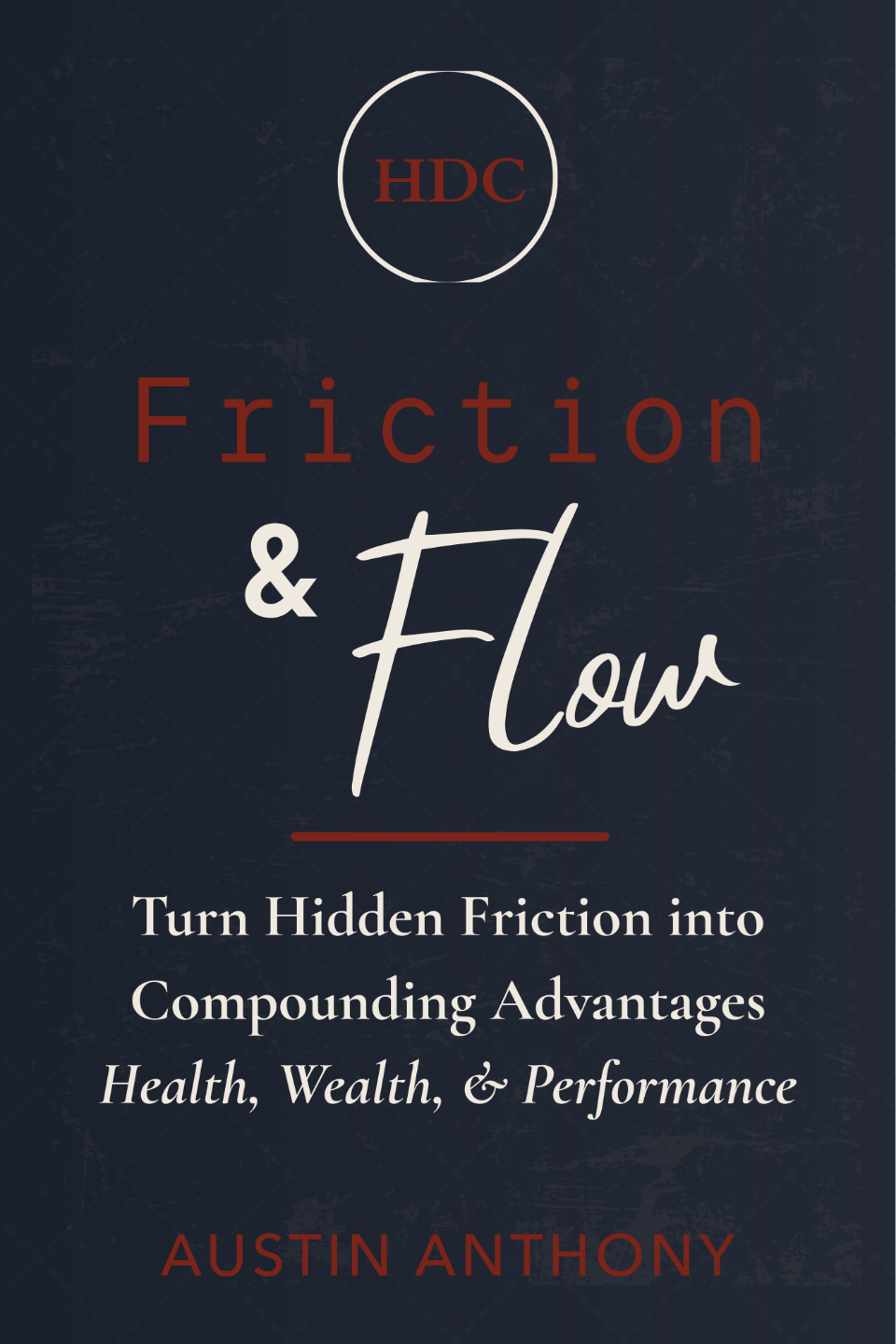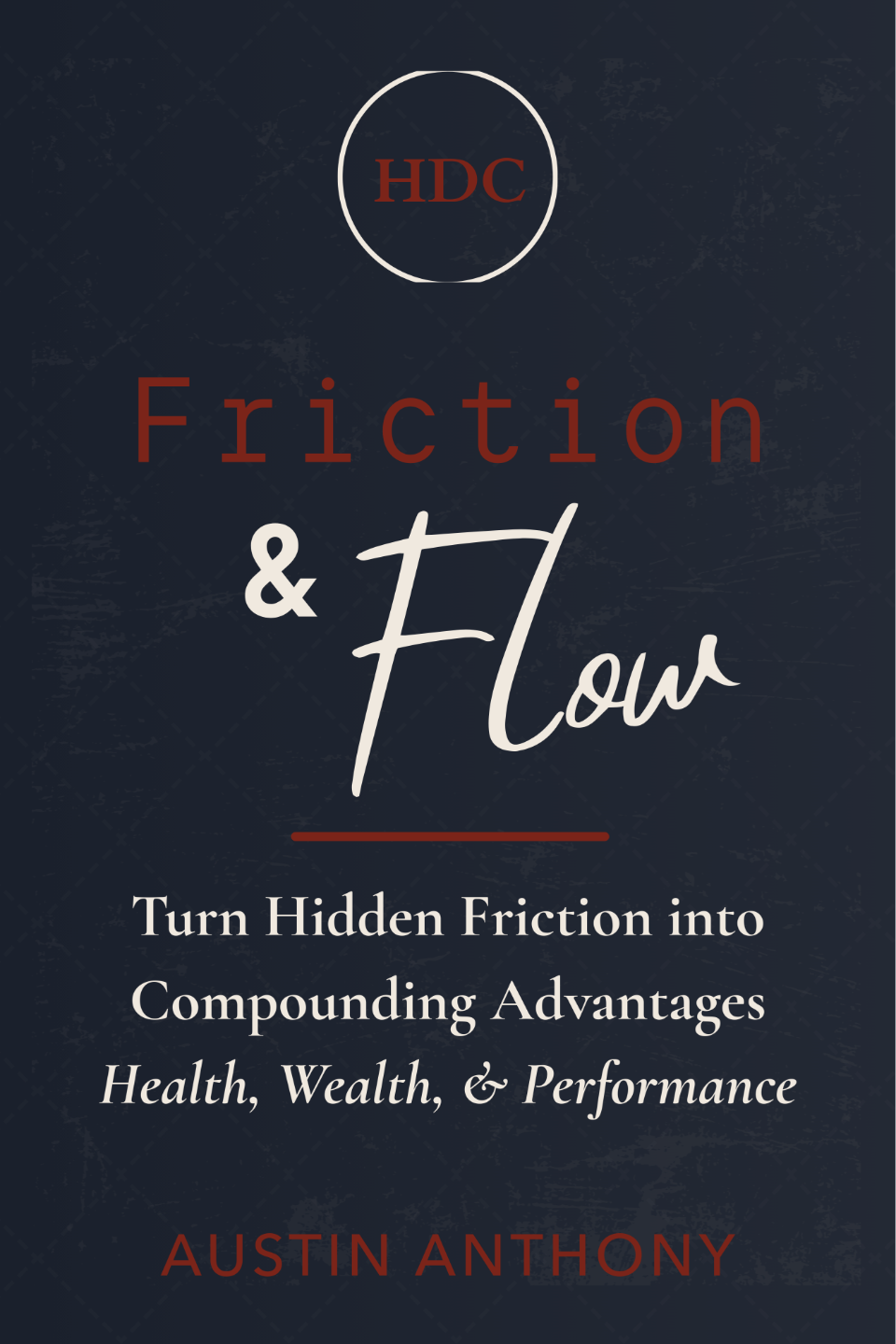
Less is More
“When friction is minimized or removed,
the perceived effort for progress and growth shifts in parallel.”
Where Did the Time Go?
24 hours.
Every day, we all get the same 24hrs, but why is it that some people seem to be constantly improving their lives and achieving more and more while others are stuck and frustrated dealing with the same problems year after year?
Or even worse, the same problems for a decade and counting? (Even despite the best of intentions, I found myself in this boat)
At the core, everyone wants better circumstances—better health, less pain, less work, more money, deeper connections, more purpose, more purposeful work, more security, more freedom—so why is it that achieving these circumstances appears to be so evasive to the majority?
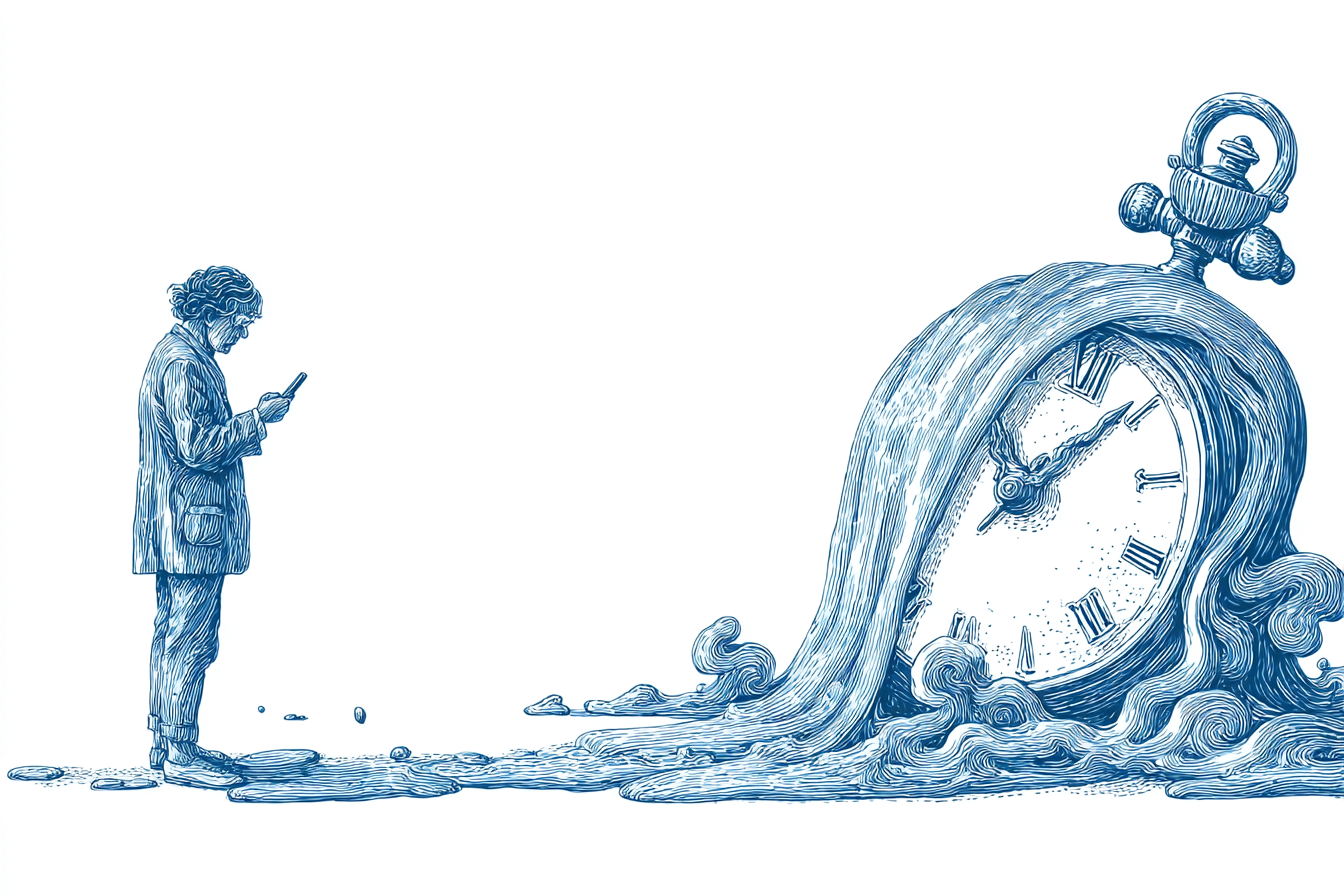
At the root, the secret is simple. How we use our 24 hours determines everything.
Research shows the average American spends 20-40+ hours every week just on digital distractions like their phone (non-work related), tv, and video games.
That's a part to full-time job—plus.
And that’s just one friction point—digital distractions.
As human beings, our most valuable assets are our time, energy, and attention, and today, most people readily throw these personal resources away for next to nothing, while most would just as readily scoff at the thought of giving a homeless person on the street $10.
Something is off with the logic here.
But what are they really worth? Why is it that we don't see the value?
What is your peace worth? Self-control? Your health? What is it worth when you're able apply your time, energy, and attention to improve your situation?To make more money? Earn more freedom? Improve your relationships?
The real question is how much are we actually throwing away for the sake of pleasure, short-term gratification, and the comfort of not addressing the foundational frameworks and systems that we're living by?
The answer, sadly, is a lot.
Improving your situation, regardless of where you're starting from, the solution always starts with understanding your points of friction and how to minimize and/or remove them.
Whether you're trying to get unstuck and out of a frustrating current reality, or if you're optimizing to perform better and achieve more, there is one thing in common.
The 22 areas in this framework are the biggest points of leverage that you can address to improve your situation.
What is the "Friction Framework"?
There's good friction, and then there's unnecessary friction. The former is like steel sharpening steel, and the latter like sand in an engine. One builds, the other deteriorates.
What are these unnecessary sources of resistance actually affecting, though? In addition to our control over our time, energy, and attention, there are various areas that create the whole picture.
In HDC’s friction framework, there are 22 points of friction that determine how effortlessly we move towards our goals and towards those better circumstances we desire.
Or, they determine how painfully impossible it feels to gain any ground, and help explain the source of frustration, lack of control, and helplessness.
Of the 22, we will focus on 7 of the biggest points of leverage to reduce resistance and to build positive momentum in your life.
The Modern War on Mental Bandwidth
Research in cognitive load theory shows that when your brain is simultaneously managing financial anxiety, poor sleep, unclear priorities, and other friction points, decision quality degrades exponentially.
Most people unknowingly create mental friction that consumes these limited resources before they can focus on what actually matters—the people you care about, the work that energizes you, or the goals you've been putting off, the ones that seem to be getting further and further away.
When these friction points aren't consuming your mental bandwidth, the same effort can produce dramatically different results.
Look at any domain—health, business, finances, relationships, life satisfaction. Those who excel aren't necessarily more disciplined or talented.
Consciously or not, they've systematically minimized the small and large sources of unnecessary friction that disperse and deteriorate their time, energy, and attention, while also preventing the dulling of natural drives that are necessary to guide these three resources toward meaningful growth.
The Marker of True Growth: From Discipline to Disposition
The real secret is making discipline irrelevant. Discipline is what's needed while behaviors are shifting from a point of familiarity to a new, different baseline.
The brain and body prefer stable predictability, so in the phase of adaption, they’re weary of change regardless of whether or not it serves your best interests.
This is why they err on the side of familiarity over personal benefit. And this is something you can feel when attempting to rewire neural pathways and your self-perceived identity.
Disposition is when you're past that, when your habits have been more or less cemented as second nature. Disposition is a baseline; a standard operating condition. The goal is building systems, and more importantly, the character traits, where the right choice becomes the automatic choice.
This is also where talent becomes irrelevant, because the biggest determinants of progress and success are consistency and longevity; i.e. habits & disposition.
As Aristotle observed, "We are what we repeatedly do, therefore, excellence is not an act, but a habit."
So arriving at an intentional, refined disposition through living life with less friction inherently produces a very different outcome in the very quality of life itself.

Friction & Flow: The Core Insight
When friction is minimized or removed, the perceived effort for progress and growth shifts in parallel.
I want you to read that again.
When friction is minimized or removed, the perceived effort for progress and growth shifts in parallel.
This is the essence of flow—that effortless state where action feels natural, time seems to disappear, and progress happens without force. Flow isn't some mystical state reserved for elite athletes and artists. It's what emerges naturally when systemic friction is removed from your life.
While as biological beings we are naturally driven to conserve energy and simply survive, we are also naturally driven to grow, create, contribute, and connect. When we have energy, our body and brain don't simply default to conserving energy and surviving.
This state is where most people get stuck—being tired, stressed, unstable, depressed. Or in other words, not in their best state to be engaged with what’s in front of them on a consistent basis.
The danger of these behaviors, patterns, and points of friction is that they either 1) steal our time, energy, and attention, 2) they dull our natural drives, which when directed with intention, provide unparalleled energy and clarity, or 3) a mix of both.
Removing friction allows our natural drives to do their job, as well as puts our most valuable resources of time, energy, and attention back into our own hands.
This is where flow lives—in the space between our natural drives and meaningful action, unobstructed by unnecessary resistance.
The Friction Cycle, Sound Familiar?
Consider the person who drinks wine every night to "unwind" but wakes up groggy, needs extra coffee to function, then crashes by 3pm and repeats the cycle. Or the person who scrolls social media when stressed, which increases comparison anxiety and makes them seek more digital escape.
Compare this to the person who removes alcohol from their house, and distractions from their life, entirely—they sleep better, wake up clear-headed, are more present to focus and engage, and have steady energy without needing stimulants. They understand that removing resistance often matters more than adding effort.
The person living paycheck to paycheck, constantly worrying about money, can't focus during important conversations because financial anxiety subconsciously fragments their attention. The person surrounded by friends who normalize complaining and victim mentality finds themselves adopting the same patterns unconsciously.
The person who says yes to every request because they lack clear priorities burns out trying to please everyone while making no meaningful progress on what actually matters to them.
Instead of being able to apply ourselves to the problems and goals that matter to us, these patterns consume the limited time, energy, and attention that each of us has.
You can become a millionaire saving on a modest income through consistency and controlled behaviors, but you can also go bankrupt with millions coming in every year through uncontrolled ones.
The difference isn't the raw inputs - it's the behavioral patterns that either compound your advantages or systematically undermine them.
Big and Small, It All Matters, Really.
There are various degrees of friction—some things cause far more resistance, and some things seem like very little things that many people would scoff at.
While things like habitual substance use, poor physical health, and subpar social environments often cause deep, widespread negative implications, there are also things like meal prepping, quality of media diet, and intentionally reducing decision fatigue through minimizing small daily decisions by sticking to simplified systems.
Both matter, the big and the “small”. Consider how many trivial decisions drain your mental energy daily - what to wear, what to eat, which route to take.
Mark Zuckerberg was known to eliminate 365 clothing decisions every year through identical grey t-shirts, preserving cognitive bandwidth for strategic analysis. Think about the last time you had trouble deciding what to wear.
That simple decision can sometimes run you in circles for 20, 30 minutes, easy. While this might seem insignificant compared to major life dysfunction, it illustrates how even minor points of friction compound.
You Already Have Everything
Here's what most people miss: you already have everything you need. The capacity for sustained growth, deep relationships, meaningful work, and genuine fulfillment isn't hidden behind some future achievement or external circumstance.
We are born very, very capable beings. The thing is, it's being systematically buried under layers of unnecessary resistance that you've unknowingly accepted as normal.
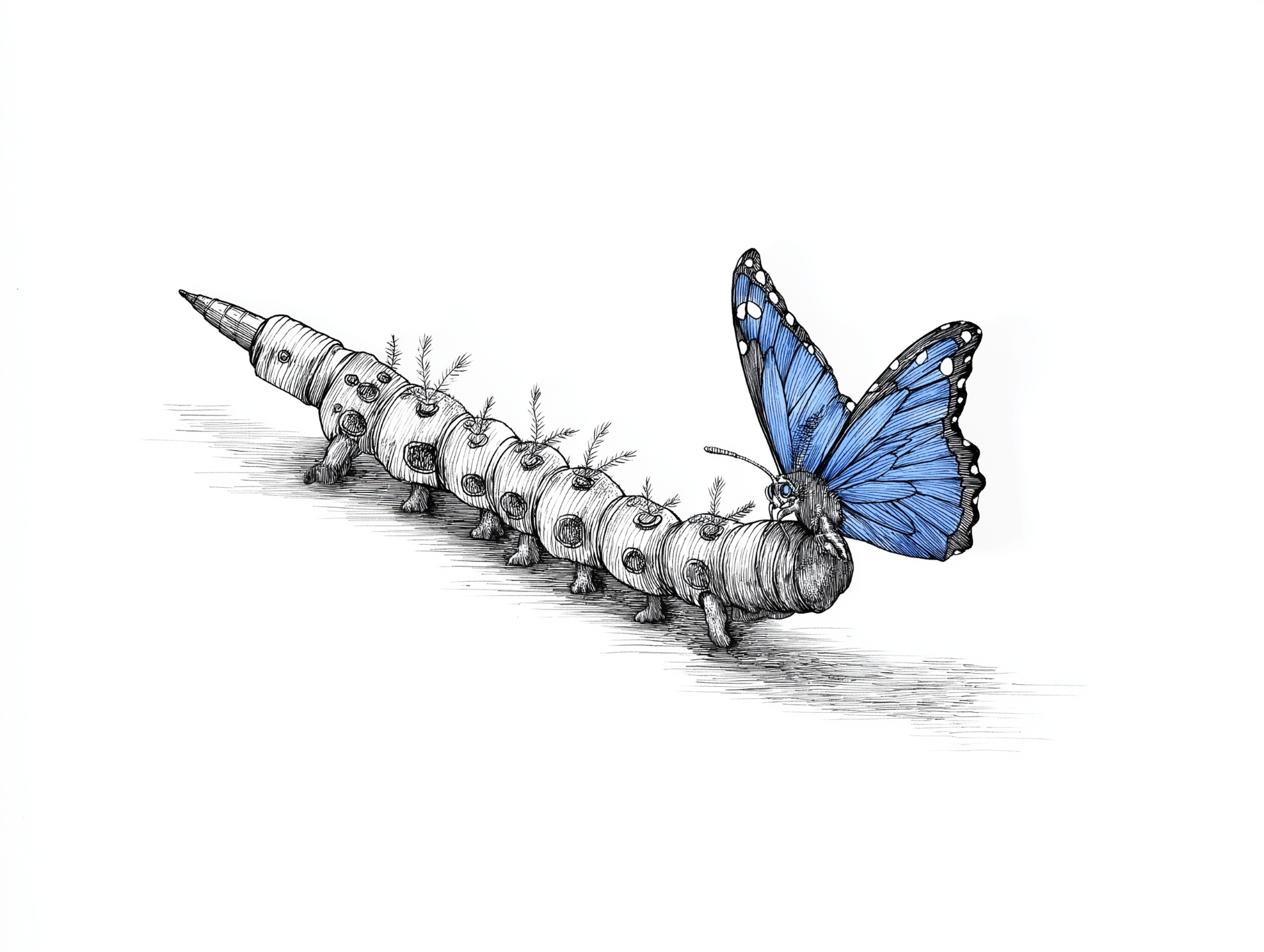
The person who's "naturally" productive, the couple with the effortless relationship, the entrepreneur who seems to have unlimited energy—they're not operating with different hardware. They're running the same human operating system, just with less, or without, the background processes that consume 90% of everyone else's processing power.
This is why this mental framework of friction elimination feels almost unfair once you experience it. You're not becoming superhuman—you're finally becoming human without the artificial limitations.
When your natural drives can operate at full capacity, what felt impossible starts feeling inevitable. The gap between who you are and who you're capable of being isn't as wide as you think - it's just been filled with sand.
What follows are the 7 biggest points of leverage when it comes to turning friction into systematic advantages. These systems and habits bleed into everything else.
The 7 Levers of Friction Assessment
The objective here is to bring an initial awareness to these areas so that you can see where your weaknesses may be. While the descriptions of each are light, it’s important to be honest and really think about how each point may be affecting you.
There are examples given, and a base to start, but we have to become curious about
When you’re ready for the full picture of what’s standing between you and your “better”, your goals, we also have the full 22 point assessment that goes into more depth.
How accurately does this describe you?
Rate each area 1-5:
1 = Not an issue for me
2 = Minor/occasional issue
3 = Moderate issue, affects me regularly
4 = Significant issue, major impact on my life
5 = Severe issue, dominates my experience
1. Foundational Instability
Basic survival systems requiring constant attention
Financial insecurity, poor physical and mental health, nutritional chaos, unsafe living conditions, or social isolation.
When your nervous system detects existential threats, it redirects cognitive resources away from abstract reasoning toward immediate survival functions.
Your autonomic nervous system operates a sophisticated threat detection system called "neuroception." This process runs entirely below conscious awareness, constantly scanning your environment to distinguish what's safe, dangerous, or life-threatening.
When it detects threat, your body reflexively triggers defensive states that prioritize immediate survival over everything else—growth, learning, strategic thinking.
Housing instability creates measurable cognitive damage. Research tracking 15,000 adults over a decade found that people experiencing foreclosure had memory decline equivalent to aging an extra 3.7 years—meaning their brains aged 13.7 years while only 10 calendar years passed.
Food insecurity studies consistently demonstrate that inadequate food access impairs cognitive function, with executive function—your brain's planning and decision-making center—taking the biggest hit.
Your survival systems evolved to automatically override higher-order thinking when basic needs feel threatened.
Housing instability disrupts working memory. Food insecurity creates measurable deficits in attention and processing speed. Social isolation literally changes brain chemistry, impairing judgment in ways that ripple across every life domain.
This biological override happens below conscious awareness. When your nervous system perceives existential threats, it systematically steals cognitive bandwidth from the very mental capacities you need most—strategic planning, creative problem-solving, delayed gratification.
These are precisely the functions required to build long-term security and break free from survival mode.
__/5
2. Limited Self-Awareness
Operating without examining your behavioral patterns
Repeating mistakes without understanding why, feeling confused about what's not working, reacting instead of responding. No reflective practices like meditation, journaling, or deliberate consolidation periods.
You can't optimize what you can't observe. Without the ability to pause, step back, and see your own patterns, you treat symptoms rather than root causes, creating cycles where the same problems resurface despite significant effort.
The real cost? This cuts us off from our intuition—one of our most sophisticated guidance systems that, when accessed with clarity and presence, can navigate complexity far beyond what our analytical mind alone can process.
__/5
3. Unclear Direction
Energy without meaningful focus
Limited life direction, unclear vision and goals, easily influenced by others' priorities and standards, unclear criteria for major decisions. Harvard's Grant Study, tracking lives for 80+ years, found people with clear direction report significantly higher satisfaction and achievement.
Without direction, energy often becomes anxiety, restlessness, and compulsive busywork that feels productive but generates little to no meaningful progress.
The hidden cost runs deeper: unclear direction erodes your capacity to tolerate productive discomfort. We can only say yes to so many things, and without a framework for why current sacrifice matters, our human nature defaults to whatever feels immediately more comfortable or stimulating.
This creates psychological dependency on external novelty, making it increasingly difficult to commit deeply to anything—the very thing that creates meaningful progress.
__/5
4. Habitual Substance Use
External dependencies for normal functioning
Regular reliance on caffeine, alcohol, nicotine, weed, or illicit drugs to manage mood or energy. This creates a preference for short-term gratification over long-term goals, making sustained effort toward important outcomes significantly more difficult.
Chronic use fundamentally alters dopamine pathways, requiring increasingly higher stimulation levels to achieve the same reward response while simultaneously making natural pleasures feel insufficient.
While there are varying degrees to these behaviors, psychoactive substances have a wide and deep range of effects that weave themselves into eroding our physical, mental, and social health, as well as our ability to accurately and honestly observe ourselves, our patterns, and to listen to our own authentic internal guidance.
(Note: we often deceive ourselves of the objective truth once our brains have adapted and created a relationship to various behaviors. Seeking the truth here can be uncomfortable, but is 100% necessary, and worth it).
__/5
5. State/Energy Management
Poor physiological regulation affecting cognitive and emotional capacity
Leveraging sleep, diet, exercise, and breathing. Addressing and managing blood sugar instability, dopamine dysregulation, disrupted circadian rhythm, cortisol, and other hormonal imbalances.
Stanford research shows that physiological arousal directly influences cognitive appraisal—your body's state literally changes how your brain interprets reality. Beyond individual performance, your energetic state influences how others respond to you and what opportunities naturally flow toward you, following principles of energetic resonance.
Your biology directly influences your psychology—physiological dysfunction makes every mental and emotional challenge significantly harder. Your (mental and physical) state is the foundation for how you perceive, and thus navigate, the world.
__/5
6. Distractions & Focus Issues
Frequent interruptions fragmenting attention and preventing deep work
Phone notifications, social media scrolling, low-value digital consumption, multitasking across competing demands, difficulty sustaining focus on challenging tasks, open cognitive loops/unaddressed problems or tasks.
After an interruption, it takes an average of 23 minutes to fully refocus on complex tasks. Research shows we can actively hold only 3-4 items in working memory simultaneously—yet most people operate with dozens of competing demands fragmenting this limited cognitive bandwidth.
Fragmented attention destroys the quality of both work and rest, preventing the deep focus required for meaningful achievement and creative problem-solving.
Like substances, this pattern favors short-term gratification over long-term goals, turning you reactive instead of intentional, in addition to negatively biasing your dopamine reward system.
__/5
7. Social Environment
Relationships that reinforce unwanted patterns
People who discourage positive changes, who enable mediocre values and standards, social activities centered around behaviors you're trying to modify, peer pressure against improvement efforts.
The Framingham Heart Study found behaviors spread through social networks up to three degrees of separation. Your friend's friend's friend directly influences your habits through unconscious mirror neuron activation.
Most people dramatically underestimate how much their peer group shapes their standards, language, and daily choices. You become the average of the people around you whether you realize it or not.
__/5
Your Score: ___/35
How Problems Compound & Multiply
Individual choices and behaviors compound to create vastly different life circumstances.
Cascades are the chain reactions where one choice or circumstance triggers another, which triggers another, so forth and so on, creating predictable behavioral cycles.
It may be hard to identify what is separated and what is connected between different cascades, like which came first the chicken or the egg?
But it's important to identify these patterns, their relationships, and then pick out the biggest leverage points and address them. This is the systems approach of removing friction points.

The Daily Grind Cascade
Unfulfilling job → drink coffee constantly to maintain energy → afternoon crash and mental fog → come home exhausted → skip gym/exercise → smoke weed to decompress → eat poorly while high → stay up late scrolling to delay facing tomorrow → poor sleep quality → wake up groggy → hit snooze multiple times → rush to work stressed → need more coffee to function → repeat cycle.
Bigger implications: No energy or mental clarity to job search, build new skills, or make career moves. Weekends become time to “recover” instead of time spent on improving one’s situation.
The Anxiety-Avoidance Spiral
Avoid difficult conversation with partner → tension builds → drink wine to cope with discomfort → wake up groggy and more anxious → avoid the conversation again → relationship problems worsen → more anxiety → more wine → less emotional capacity → avoid other important tasks like finances → money stress adds to relationship stress → even more avoidance and substance use.
Bigger implications: Relationships deteriorate, financial problems compound, self-confidence erodes, life feels out of control.
The Social Drift
No clear personal goals → hang out with friends who just complain and party → adopt their standards and language → engage in activities that don't align with who you want to become → internal conflict and guilt → use substances or distractions to numb the discomfort → spend more time with people who normalize this → identity forms around these patterns → resist positive changes because friend group doesn't support them.
Bigger implications: Years pass without meaningful progress, increasing gap between current life and potential, identity becomes tied to limitation.
The Energy Crash Cycle
Skip breakfast → blood sugar crashes by 10am → grab sugary snack and coffee → energy spike then crash → feel tired and irritable → order takeout for lunch → afternoon energy crash → more caffeine → can't fall asleep → poor sleep → hit snooze → wake up tired → skip exercise → skip breakfast → repeat.
Bigger implications: Constant low-grade fatigue becomes your baseline, important projects never get deep focus, exercise feels impossible, mood becomes dependent on food timing.
The (Positive) Momentum Cascade
Clear priorities → decline non-essential requests → deep work on meaningful projects → sense of progress and accomplishment → no space to waste on substances or low-value distractions → better sleep from feeling fulfilled → wake up energized → consistent morning routine → sustained energy throughout day → more capacity for relationships and creativity → positive reinforcement loop.
Bigger implications: Compound progress on important goals, increased confidence, natural motivation without external stimulation, flow states become accessible.
When Cascades Converge: The Systems of Identity Entanglement
These different patterns, cycles, and cascades often combine in real life.
The person stuck in the daily grind (cascade 1) develops relationship tension from being constantly tired and unfulfilled (cascade 2). Instead of addressing career or relationship issues, they escape by hanging out with friends who normalize complaining and habitual substance use (cascade 3).
Poor diet and substances create constant energy crashes and emotional volatility that make addressing any of these problems feel overwhelming (cascade 4).
Each cascade reinforces the others, creating a complex web where individual behavioral changes feel insufficient because the underlying system remains intact.
This demonstrates why isolated efforts often fail at achieving the deepest layer of change, identity change.
When multiple friction points and cascade cycles operate together, they create deep rooted systematic resistance that makes individual behavior change feel nearly impossible.
You're not fighting one problem; you're fighting an interconnected system of problems and patterns that have intertwined with each other and compounded each other.
This convergence of behavioral and situational cascades essentially creates what is and feels like someone's absolute life.
When someone says "this is just how things are" or "this is just how I am," they usually lack the insight that can only be seen with this level of awareness through this framework.
Breaking the Invisible Chains
What this awareness does, in turn, is extremely empowering. Instead of guessing why "things are the way they are," you can start to pinpoint high leverage areas, alter and improve them, and then see how those changes positively cascade throughout other areas in your life.
It's no wonder that so many people genuinely feel they're locked into "who they are" and underestimate how much they can change.
Is it a lot to break things down like this? Does it take honesty and a high level of self-awareness? Does it take consistent effort? Yes. But is it worth it? Is it worth being able to predictably take control of your life and your situation? That's up for you to decide.
Most people spend their entire lives being shaped by systems they never learned to see—biological, psychological, societal, social.
First, we must see.
Then, we must decide.
And finally, we must act.
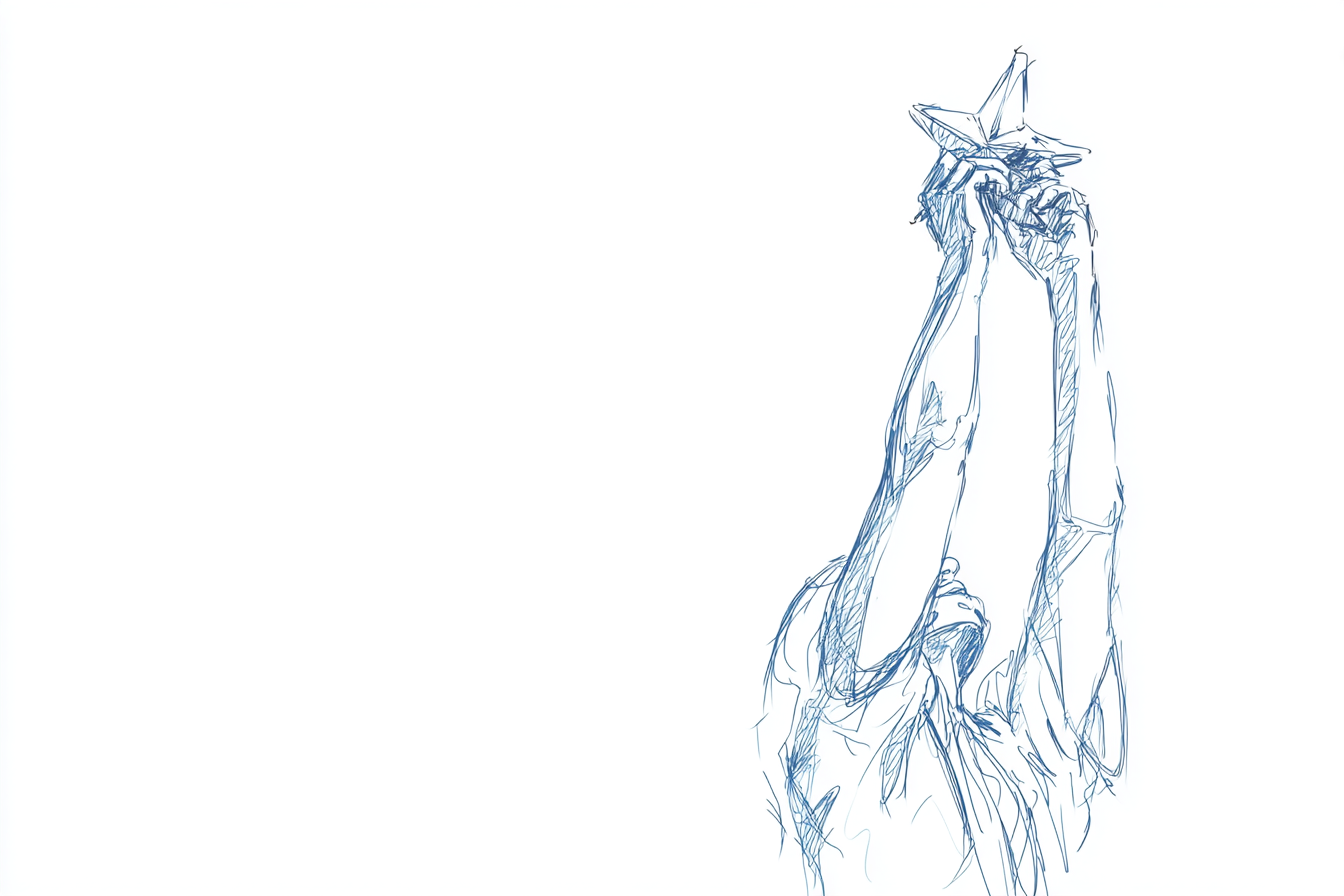
Using Your Results
The reality is that you can spend 5 minutes or 50 minutes on this depending how deep you want to dive. The goal here is 1) for you to see and acknowledge areas that are undermining your energy and efforts and 2) for you to create a plan to start removing unnecessary friction points, and either fix them, or replace them, with habits that serve you.
Which of these friction points creates the most resistance in your daily life? Look at your 4s and 5s—these are where your time, energy, and attention are being systematically drained or misdirected.
What cascade effects can you identify? How do your highest-scoring areas reinforce each other and create compound resistance? (Reference the examples above)
Pick ONE friction point to address in the next 30 days. Which would create the biggest positive ripple effect across other areas? Start there and watch how systematically addressing one area begins to improve the others.
When you systemically remove these friction points, you're not just solving problems - you're creating space for flow. The energy previously consumed by resistance becomes available for the work and relationships that matter most.
Also, don't ignore the 1s, 2s, and 3s. There are always opportunities to tighten up our systems, processes, and behaviors. 1-2% better across 5-10 small changes is a 5-20% improvement—compound optimization matters just as much as fixing major friction points.
Remember, the pros play in the details.
Your Next Step
You've completed step one: You've been introduced to 7 key systems in HDC's Friction Framework.
Step two is deciding: Choose the highest-leverage friction point from your assessment—the one that, if improved, would make the biggest difference across multiple areas of your life.
Step three is acting: Commit to addressing that single friction point for the next 30 days, or if you’re ready, check out HDC’s 100 Day Challenge and see how you can integrate this into supporting whatever your most important goal to you right now.
Want the Complete Picture?
This assessment covers the 7 biggest friction points, but there are 22 total in HDC's framework to help pinpoint and identify what is making your life harder than it has to be.
In the case of self-improvement and improving our circumstances, ignorance is not bliss.
Get the Complete Friction Reduction Assessment™ - the full system with detailed interaction patterns, priority sequences, and research-backed approaches for converting these friction points into systematic advantages.
